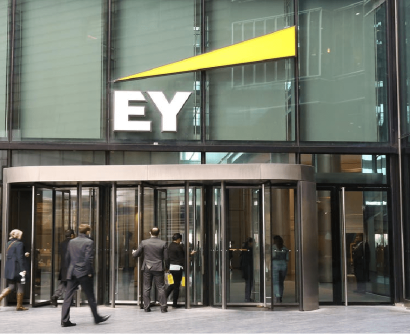Currently Empty: $0

Pre-Covid-19, sacrificing almost everything in the interests of work was deemed the norm for many people. Employers and employees working tirelessly day-in-and-day-out to ensure availability of themselves to colleagues and clients, while simultaneously building trust and credibility was a given. Many people excelled at the relentless task of giving their all as they delivered work of an excellent standard.
However, despite this striving for high performance and perfection, workers were often teetering on the brink of breakdown.
Despite the semblance of normality and the striving to portray an image of responsibility and visibility in the workplace as part of the high-performance model, many employees were struggling to keep afloat. These trends align with Rishad Tobaccowala’s apt description of the habits people adopt that have “kept us moving our meat-cased brains in carbon-burning, time-wasting, stress-inducing rituals of going back and forth to work like some hamsters on a wheel.”
This habitual path is unfortunately seen as a necessary rite of passage of a person’s professional journey in the advertising industry.
Cue 2022.
The great reset
The catastrophic nature of the Covid-19 pandemic destabilized every aspect of society, fundamentally challenging “the traditional context for decision-making,” both in business and in life, leaving the future uncertain. Cannes Lions described it as a creative revolution: “The blank canvas, clean-slate moment in the resetting scenario, lends a perfect platform for creativity to contribute to the business recovery … A strategic opportunity to rise up to the occasion.”
In addition, as the need to define our collective recovery presents itself, The World Economic Forum issues a challenge to “build a new social contract,” one that re-imagines how we do things by asking the question why.
A return to the office: what is the intention?
Most leaders are busy deliberating the future of work with little understanding about what the employee values, thus putting their businesses at risk. The compelling question of returning to the office or not arises as a significant priority for many. ‘The Great Resignation,’ a term coined by organisational psychologist, Anthony Klots, demands an immediate response from those in the workforce. The focus seems to be on how quickly a stance of ‘back to normal’ can be adopted, rather than people taking the time to interrogate the underlying causes of employer/employee attrition.
Klots revealed in an interview with Business Insider that he knew the existential crisis of business (resulting from the pandemic), was bound to lead to an existential crisis for workers. He argued convincingly that one’s actions are an extension of one’s being. Mckinsey’s recent research into ‘the great attrition’ highlights the fact that employees “crave investment in the human aspects of work … they want social and interpersonal connection with their colleagues and managers. They want meaningful – though not necessarily in-person – interactions, not just transactions.”
The question remains then as to how employers and employees authentically respond to meet these new demands, which in essence contradict everything that is known about traditional ways of working, and interacting.
A reluctance to return to the office
In Mckinsey’s article entitled ‘Reimagining the office and work life after Covid-19’, he posits the idea that perhaps the satisfaction people experience working from home is the ‘product of the social capital built up through countless hours of water-cooler conversations, meetings, and social engagements before the onset of the crisis.’
Whilst the concept of social capital is multidimensional, the aspect that stands out most in this context is the social connectedness that occurs between people, and how it has the propensity to facilitate productive outcomes. The question that remains uppermost in people’s minds centres on the notion of what would happen over time were people starved of unplanned physical collaboration and seemingly meaningless banter. The possibility exists that people’s perceptions might undergo a change in which case our perception of social connectedness might not constitute integrating freely, or congregating around the barista on the fifth floor, if social distancing has to be enacted, or a worse scenario – if there is no barista!
Preparation for re-entry: a new narrative
“It’s time to do away with the workplace policies that belong in a Mad Men episode,” Barack Obama once said in reference to gender inequality in modern America. Similarly, nostalgia for past practices, and resistance to pre-Covid-19 ‘workplace policies’ that once enslaved both men and women through a false sense of meaning and a lacklustre work ‘culture,’ has left people feeling unfulfilled in the ‘modern workplace.
References to a by-gone era resound an ode to the ‘hey day’ when things were different, now companies value tasks and functions above the contributions of the workforce, and favor job completion and meetings to the detriment of their people.
A work/life balance, as well as emotional and mental wellness is of utmost importance and should matter most. An organisation that values and nurtures its people, in-person or not, where an inclusive culture nurtures a sense of belonging, and an environment in which everyone has the opportunity to grow, is a company that will flourish.
In the words of Joseph Brodsky, “it’s the echo that counts.” It is understood that those memories that define social connection are given life, the more people reminisce over them. It is time to reflect on, and re-imagine a new narrative where alternative ways of interaction are possible so that the emerging echo can be something worth remembering.
Source: GWFM Research
Subscribe as a member:https://globalwfm.com/become-gwfm-member/
Visit us for WFM Learning Academy: https://gwfmlearning.online/courses/








